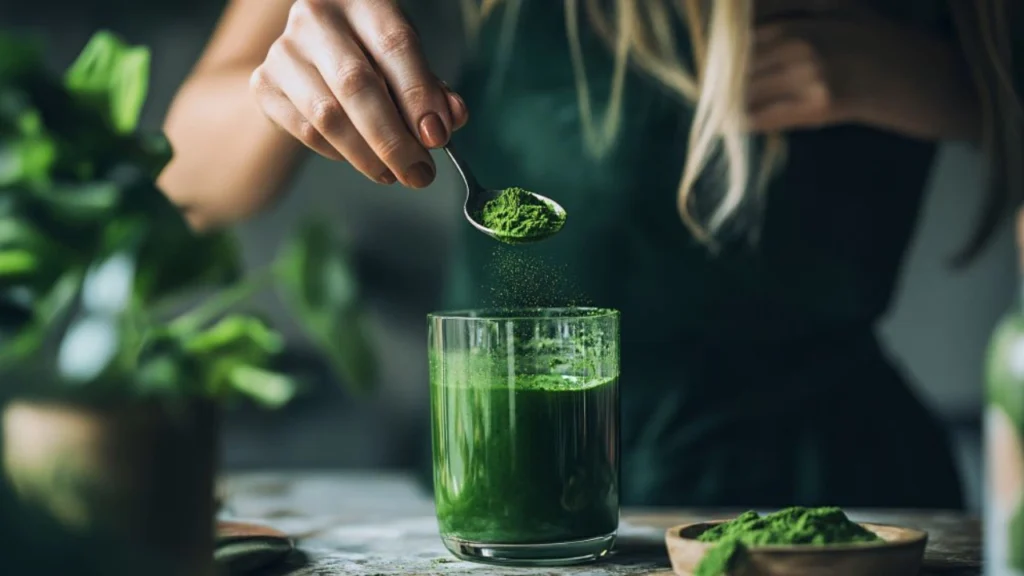Is a scoop of greens powder really the secret to better health, or is it just another trend in the wellness world? These powders have gained much attention, with promises of boosting energy, improving digestion, and filling nutritional gaps. But as more people add them to smoothies and morning routines, the big question remains: are they actually worth it?

In this article, we’ll examine the contents of these powders and help you decide whether they’re a wise investment for your wellness goals. Read on!
What Exactly Is Greens Powder?
Greens powders are concentrated blends of dried vegetables, fruits, herbs, and other plant-based ingredients ground into fine powder. They’re often mixed into smoothies or water for a quick nutrition boost. Common ingredients include spinach, chlorella, spirulina, and wheatgrass. Some brands add probiotics or digestive enzymes to support gut health.
You’ll also find specialized blends like keto greens for people following low-carb diets, or organic kale powder for those who want to focus on nutrient-dense greens. While the ingredients vary, the goal is to provide an easy way to add plant-based nutrients to your daily routine.
When researching, look beyond flashy labels and focus on ingredient quality. Some blends, such as AG1 greens, combine various vegetables, probiotics, and adaptogens to create a comprehensive formula. Others may focus on a smaller set of ingredients, emphasizing specific nutrients or dietary needs. Taking time to compare labels, sourcing practices, and third-party testing can help you find a powder that genuinely supports your health goals.
Nutritional Value and Potential Benefits of Greens Powder
Green powders are often promoted for their wide range of health benefits. Some of them include the following:
Supports Daily Nutrition
One of the main appeals of powdered greens is their nutritional value. These blends contain vitamins, minerals, and antioxidants. Vitamin C is especially common, and it can help the body absorb iron more effectively. For people who struggle to eat enough whole fruits and vegetables every day, a scoop of super greens can help bridge the gap.
Although powders can’t fully replace fresh produce, they may offer a convenient backup. They provide concentrated nutrition in a form that’s quick and easy to use, especially for busy lifestyles.
Promotes Gut and Digestive Health
Greens powders sometimes include ingredients that support gut health. Probiotics and digestive enzymes are common additions, which can help the body break down food more efficiently. This can improve digestive health, especially for people who often experience bloating or discomfort after meals.
A healthier gut may also improve nutrient absorption, which means you’re more likely to get the most out of the food you eat. While the effects won’t be dramatic overnight, consistent use may lead to small but steady improvements in digestion.
Provides Support for the Immune System
Another reason people turn to green powders is for immune system support. Along with vitamin C, many blends include plant compounds with antioxidant properties. These compounds can help protect cells from damage and strengthen the body’s natural defenses.
While no supplement can guarantee you won’t get sick, adding greens powder to a balanced diet may provide extra support during flu season or times of stress. It’s an easy way to fill possible nutritional gaps without much effort.
Potential Drawbacks and Considerations of Greens Powder
While green powder offers convenience and concentrated nutrition, it’s essential to recognize that these supplements have limitations. Here are a few:
Limited Fiber Compared to Whole Foods
Greens powders may not contain the same amount of fiber found in whole fruits and vegetables. Fiber is vital for healthy digestion and creates a sense of fullness, yet powdered greens can fall short in this area. Beyond nutrition, whole foods also bring unique textures and flavors that powders may not match.
As such, it’s best to view green powders as a supplement instead of a replacement. They can help support your diet, but fresh produce is still necessary for a balanced and satisfying approach to nutrition.
Cost and Quality Concerns
Another drawback is cost. High-quality greens powders can be expensive, especially if you use them daily. Over time, this can add up to a significant expense compared to buying fresh produce at the grocery store.
Quality is also a concern. The supplement industry isn’t tightly regulated, so some products may not contain the nutrients listed on the label. One way to reduce this risk is to look for third-party tested powders.
Taste and Ingredient Issues
Taste is a crucial consideration when it comes to greens powders. Some have a strong earthy flavor that’s difficult to mask, even in smoothies. You can add sweeteners or flavoring agents to improve taste, but these can reduce the appeal for people seeking a cleaner product.
For those who value purity, checking the ingredient list carefully is critical. An organic kale powder with minimal additives may be a better option than blends with fillers or artificial flavors.
“All-Natural Greens Powder isn’t just a supplement — it’s a daily dose of superfoods in a scoop, giving your body the fuel it craves for energy, immunity, and glow! 🥬”
Is Greens Powder Worth the Hype?
Whether green powders are worth it depends on your lifestyle and diet. Powdered greens may provide a helpful backup if you rarely eat vegetables and struggle to include whole fruits in your meals. These cheat meals are especially convenient for travelers, busy professionals, or anyone who wants quick access to extra nutrients.
However, if you already eat a wide variety of fresh produce, the benefits may be less noticeable. Your body doesn’t store unlimited vitamins, so taking more than you need may not necessarily improve your health.
Final Thoughts
Greens powders can support nutrition and offer convenience, but they shouldn’t replace whole foods. They may help with digestion, provide vitamins, and support a busy lifestyle, yet they lack the fiber and variety of fresh produce. Instead of seeing them as a shortcut to health, they work best as a supplement to an already balanced diet, providing extra support when life gets busy.
Join 25,000+ smart readers—don’t miss out!







